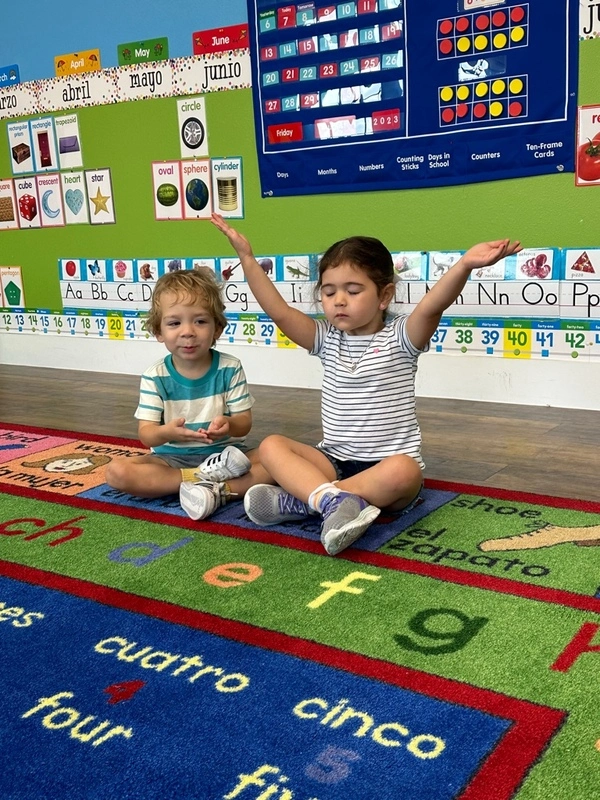Understanding the Importance of Social and Emotional Learning (SEL) at Excelsior Preschool in Midlothian, TX
- Dr. U'Nika Harrell

- Mar 15, 2024
- 3 min read
Updated: Mar 23, 2024
In today's rapidly changing world, academic success is no longer solely determined by traditional measures like test scores and grades. Educators, parents, and policymakers increasingly recognize the importance of Social and Emotional Learning (SEL) in preparing students for success in school, work, and life. But what exactly is SEL, and why is it so crucial? In this blog, we'll delve into the concept of SEL, explore its components, and discuss its significance in fostering well-rounded students equipped to thrive in the modern world.
What is Social and Emotional Learning (SEL)?
Social and Emotional Learning (SEL) is the process through which students develop the skills, attitudes, and values necessary to understand and manage emotions, establish positive relationships, demonstrate empathy and compassion, make responsible decisions, and effectively navigate social situations. SEL encompasses a broad range of competencies contributing to overall well-being and success inside and outside the classroom. In the photo above you see Excelsior Preparatory Preschool, Midlothian, Tx students practicing deep breathing during the morning announcements. It is a part of their everyday routine.
The Five Core Competencies of SEL:
SEL is typically organized around five core competencies, as outlined by the Collaborative for Academic, Social, and Emotional Learning (CASEL):
Self-Awareness: The ability to recognize and understand one's own emotions, thoughts, and values, as well as their impact on behavior and relationships. Self-aware children can accurately assess their strengths and limitations, as well as their emotions and reactions to various situations.
Self-Management: The capacity to regulate emotions, thoughts, and behaviors in different situations, including managing stress, controlling impulses, and setting and working towards personal and academic goals. Self-managed students demonstrate resilience and perseverance in the face of challenges.
Social Awareness: The ability to empathize and understand the perspectives and feelings of others, as well as to appreciate and respect diversity. Socially aware children demonstrate empathy, compassion, and a sense of social responsibility, and they are skilled at navigating social dynamics and building positive relationships.
Relationship Skills: The capacity to establish and maintain healthy and rewarding relationships with diverse groups. Relationship skills include effective communication, active listening, cooperation, conflict resolution, and teamwork. Children with strong relationship skills can constructively collaborate, negotiate, and resolve conflicts.
Responsible Decision-Making: The ability to make ethical, constructive choices about personal and social behavior based on consideration of moral standards, safety concerns, social norms, and the well-being of self and others. Responsible decision-makers weigh the consequences of their actions and take accountability for their choices.
Why is Social and Emotional Learning (SEL) Important?
The importance of SEL cannot be overstated, as it plays a fundamental role in shaping student's overall development and success throughout their lives. Here are several vital reasons why SEL is crucial:
Academic Success: Research has shown that students participating in SEL programs demonstrate improved academic performance, including higher grades, standardized test scores, and graduation rates. By cultivating essential skills such as self-regulation, problem-solving, and collaboration, SEL equips students with the tools they need to succeed academically.
Positive Relationships: SEL fosters the development of strong, supportive relationships with peers, teachers, family members, and community members. These positive relationships create a sense of belonging and connectedness, which is essential for social and emotional well-being.
Emotional Well-Being: SEL helps students develop a deeper understanding and acceptance of their emotions and the ability to manage them effectively. By learning to recognize and regulate their emotions, children can reduce stress, anxiety, and depression, leading to improved mental health and overall well-being.
Social Skills: SEL promotes the development of essential social skills, such as empathy, communication, and conflict resolution, which are critical for success in all areas of life. These skills enable students to build and maintain healthy relationships, collaborate effectively, and confidently navigate social situations.
Responsible Citizenship: SEL instills a sense of social responsibility and ethical decision-making, empowering students to contribute positively to their communities and society. SEL promotes active citizenship and collective action toward creating a more equitable and inclusive world by fostering empathy, compassion, and a commitment to social justice even at an early age.
Social and Emotional Learning (SEL) is essential for equipping students with the skills, attitudes, and values they need to succeed academically, socially, and emotionally. By fostering self-awareness, self-management, social awareness, relationship skills, and responsible decision-making, SEL empowers children to navigate life's challenges, build positive relationships, and make meaningful contributions to their communities. As educators, parents, and policymakers, it is imperative that we prioritize SEL and integrate it into every aspect of education and youth development, ensuring that all children have the opportunity to thrive and fulfill their potential.







Comments